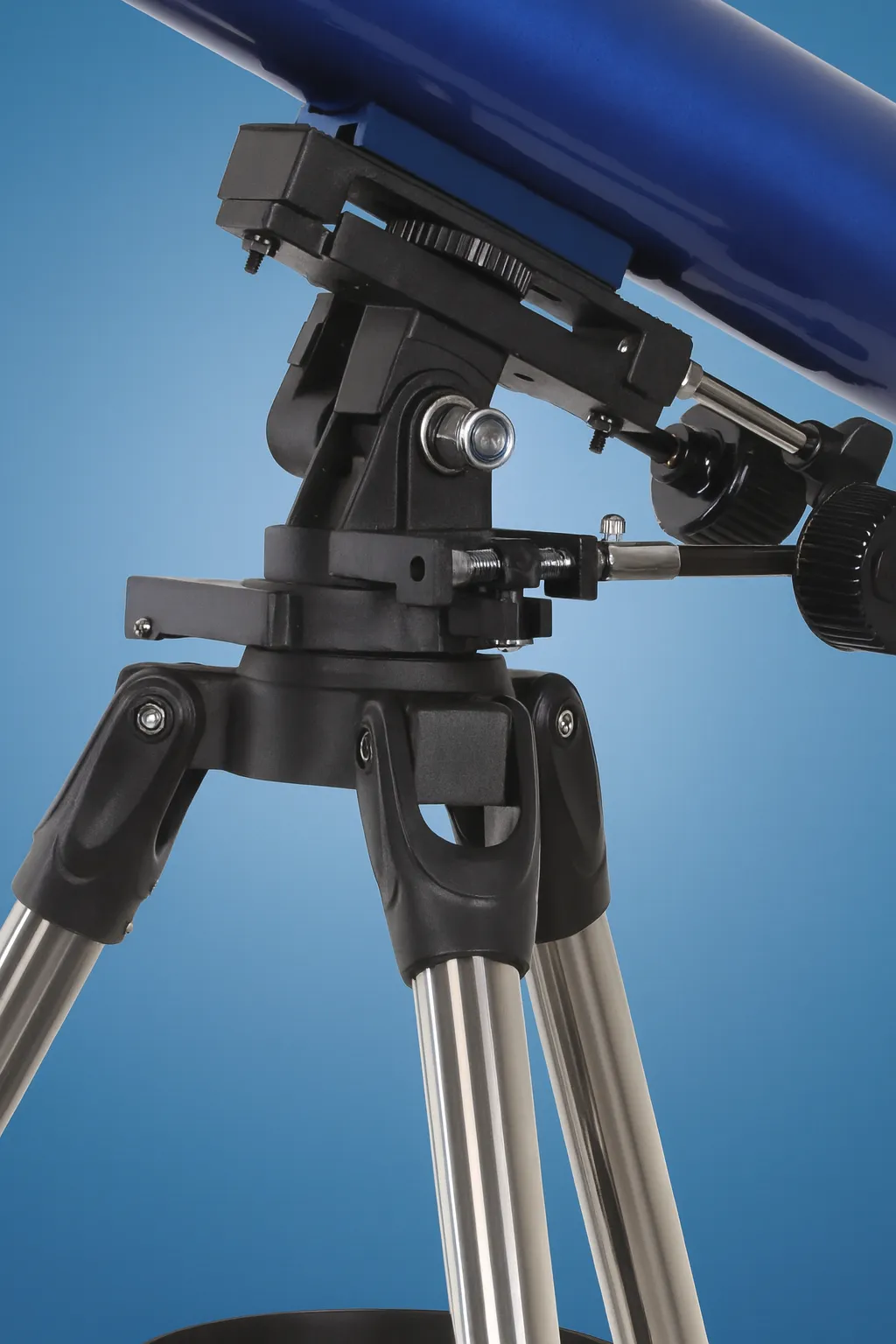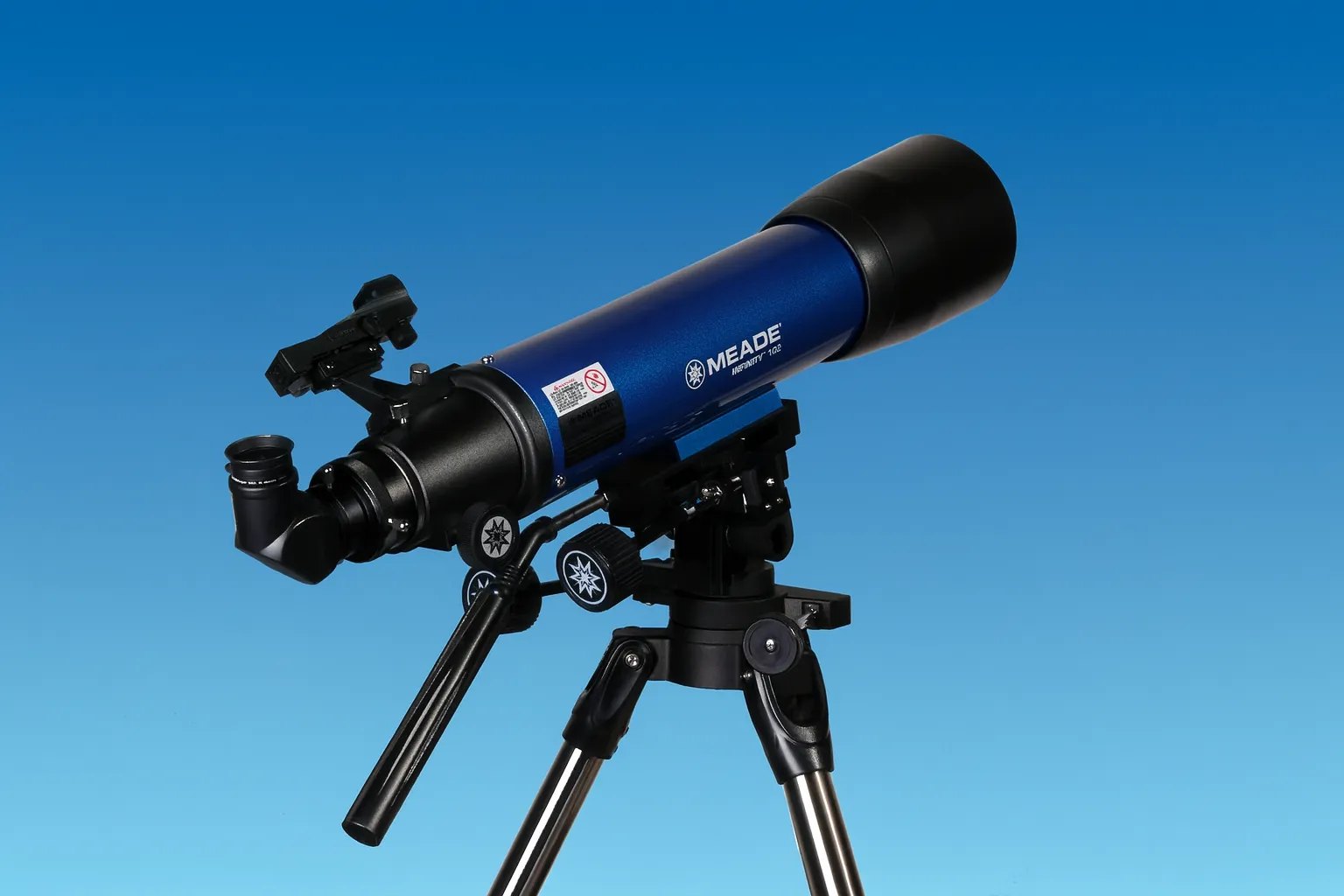Introduction
The Meade Infinity 80 is marketed as an affordable, grab-and-go refractor for beginners. With an 80mm aperture and f/5 focal ratio, it prioritizes portability and ease of use over raw optical power. While limited in deep-sky performance, it offers sharp lunar and planetary views for its price point and is often recommended as a starter telescope.
Pros
- Lightweight and portable—ideal for grab-and-go use
- Decent lunar and planetary performance for beginners
- Metal 1.25″ rack-and-pinion focuser is solid and smooth
- Includes a variety of starter accessories
Cons
- 80mm aperture limits faint deep-sky observing
- Mount stability and fine control are limited at higher magnifications
- Stock eyepieces and Barlow are of average quality
- Plastic construction in mount/tripod reduces durability
Optics & Eyepieces
The 80mm f/5 refractor design provides wide-field views that are popular with beginners. Bright objects like the Moon, Jupiter’s Galilean moons, and Saturn’s rings are clearly visible, with some reports noting that larger features such as the Cassini Division and Jupiter’s cloud bands can occasionally be made out under good conditions. The Great Red Spot is at the threshold of visibility. Deep-sky performance is modest, but bright objects such as the Pleiades, Orion Nebula, and Andromeda Galaxy are within reach.
The included Kellner eyepieces (26mm, 9mm, and 6.3mm) are functional but limited. The 26mm provides comfortable low-power views, while the shorter focal lengths quickly highlight the mount’s instability at higher powers. Many users recommend upgrading eyepieces for better clarity. The supplied 2x Barlow lens works, but adds little to the scope’s capability.

Mount & Tripod
The alt-azimuth mount with slow-motion controls offers simplicity for beginners. However, reports often note that the mostly plastic build and sensitivity in the vertical axis make fine adjustments at high magnification difficult. At low powers, the motion is reasonably smooth and functional. The tripod is serviceable and adequate for the scope’s lightweight optical tube, but not especially robust.
Accessories
The Infinity 80 includes three eyepieces, a Barlow lens, a 90° erect-image diagonal, and a red-dot finder. The finder is considered effective given the scope’s wide fields of view. The diagonal is useful for terrestrial viewing but slightly reduces brightness and contrast for celestial observing. The focuser, by contrast, is a strong point: a metal 1.25″ rack-and-pinion unit that operates smoothly and supports standard eyepieces.

Drawbacks
The main compromises are typical for this price range: a limited 80mm aperture, average stock accessories, and a plastic mount that struggles with high magnifications. While the scope is affordable and beginner-friendly, investing in better eyepieces and potentially a sturdier mount can significantly improve the experience.
Conclusion
The Meade Infinity 80 is widely regarded as a solid entry-level refractor for those seeking an affordable, portable, and straightforward telescope. It performs best on bright Solar System targets and wide-field deep-sky objects. While its accessories and mount leave room for improvement, it delivers good value for the price and is a popular choice for beginners looking for their first grab-and-go telescope.
Disclaimer: This overview is based on official specifications, published reviews, and community feedback. We haven’t personally tested this telescope, but we’ve compiled insights from trusted sources to provide a balanced summary.
